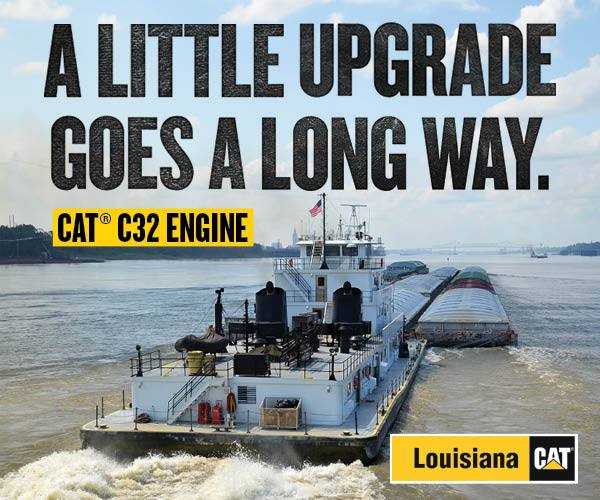Ukraine Conflict Highlights Water Transport
As Russia’s war against Ukraine drags on, a recent presentation by Antonina Broyaka, an associate professor in the business and economics faculty of Ukraine’s Vinnytsia National Agrarian University, to U.S. agriculture interests detailed the struggles Ukraine is having in keeping up planting and agricultural exports. Russia has virtually destroyed one port, Mariupol, while Russian naval activities have closed off Ukraine’s other Black Sea ports. All Ukrainian grain exports now have to travel by rail through the country’s western border. Efforts are being made to double rail grain exports, according to Broyaka. The lack of fertilizer exports from both Ukraine and Russia is causing difficulties for farmers around the world as well.
Cutting off maritime trade is yet another weapon in Russia’s arsenal. There is little doubt Russia understands the pressure it puts on Ukraine and those that depend on its goods.
As supplies of wheat, corn, sunflower seed and other agricultural products from Ukraine and Russia are curtailed, American farmers will be called on, once again, to help relieve shortages around the world. All transportation modes will be needed to assist, but maritime will be the difference maker with its affordability and capacity for growth. We will be combating the threat of decreased exports in Ukraine and Russia by, hopefully, increasing our exports.
A similar opportunity exists for energy and other goods.
Infrastructure investments must necessarily be forward-looking. In the 1930s, the Upper Mississippi River locks and dams were originally built. At the time, relieving unemployment was touted as a main reason for building them. Some critics of the Works Projects Administration (which provided funding) called WPA projects “make-work.” There is little debate today about the value of that work. Yes, a considerable number of lasting good jobs were created and there have been huge savings to shippers, but there was another positive outcome. It helped maintain a geopolitical advantage. By being better able to supply the world with grain, energy, aggregates and other goods, the United States reduces the world’s dependence on non-allied countries. Those countries, like Russia today, are very willing to hold the supply of goods hostage and/or raise the cost of goods whenever it is in their advantage.
Waterways and ports offer a considerable benefit to the United States and the world. Beyond jobs and cost-efficiency, beyond environmental benefits, they confer geopolitical advantage and protect national security. One of the many lessons that are being taught by the Ukraine war is the value of a strong export market and the maritime infrastructure that supports it.



